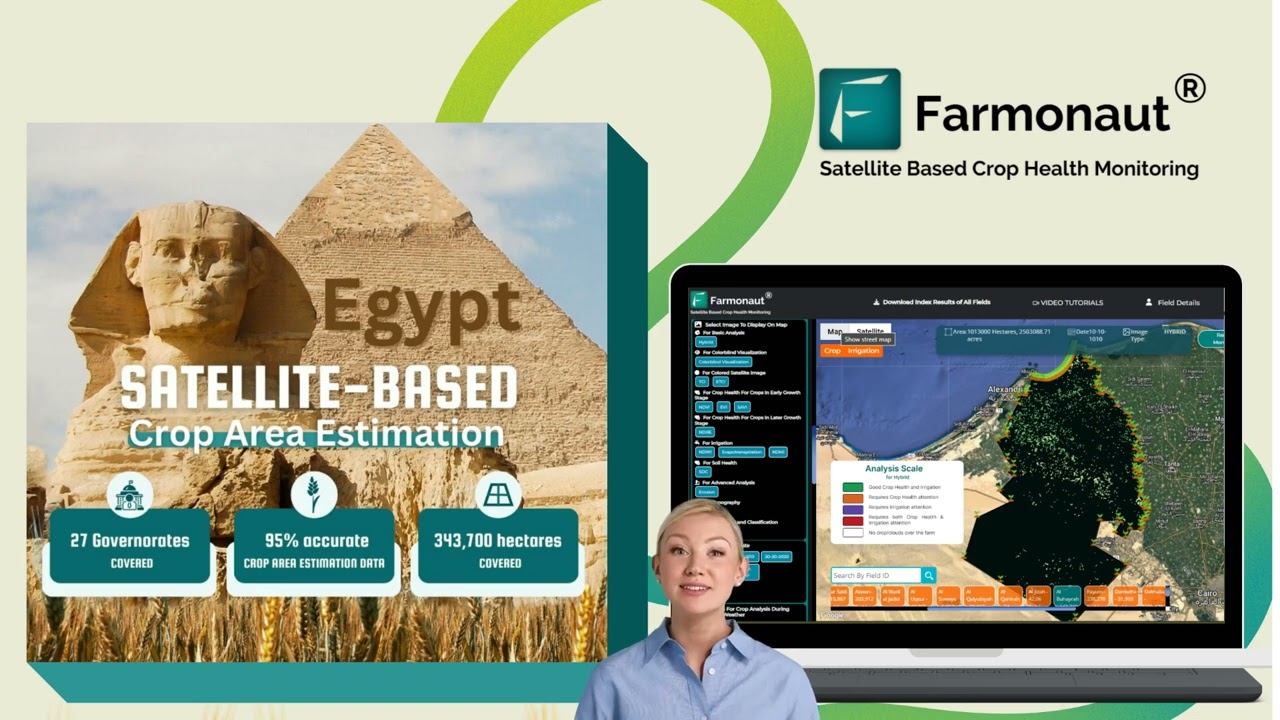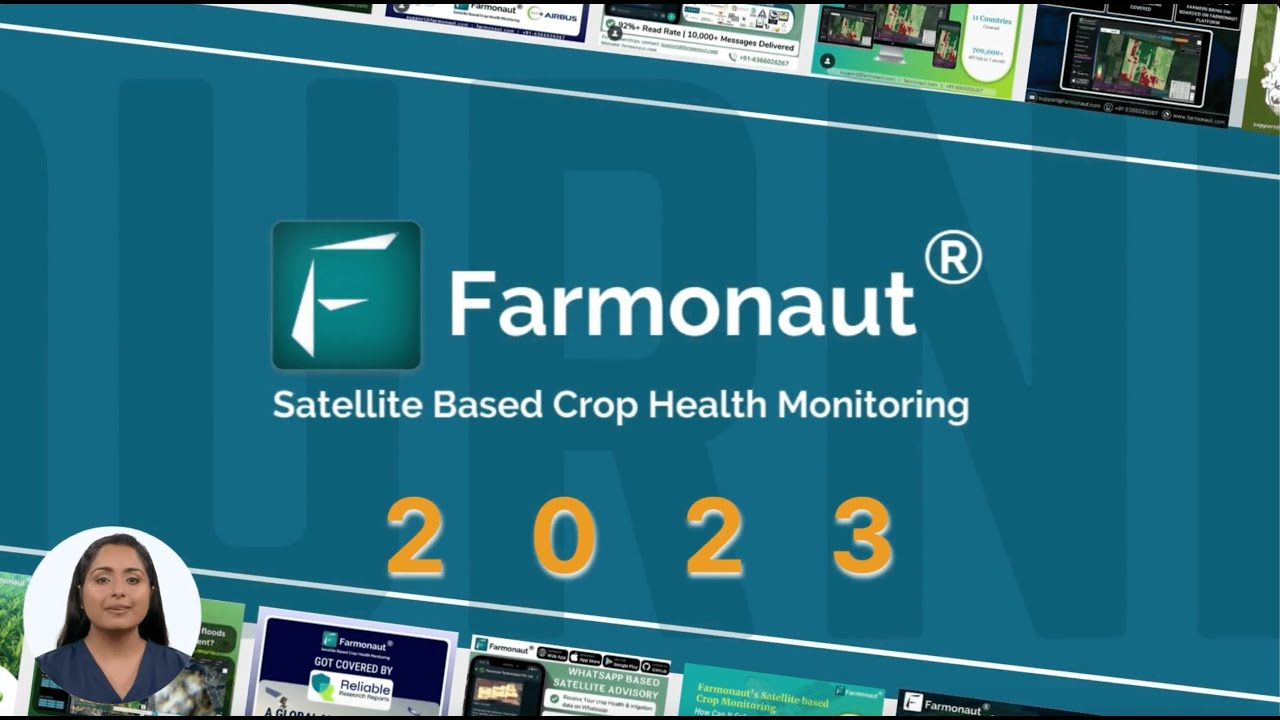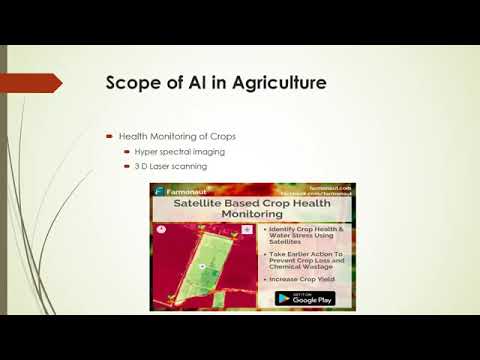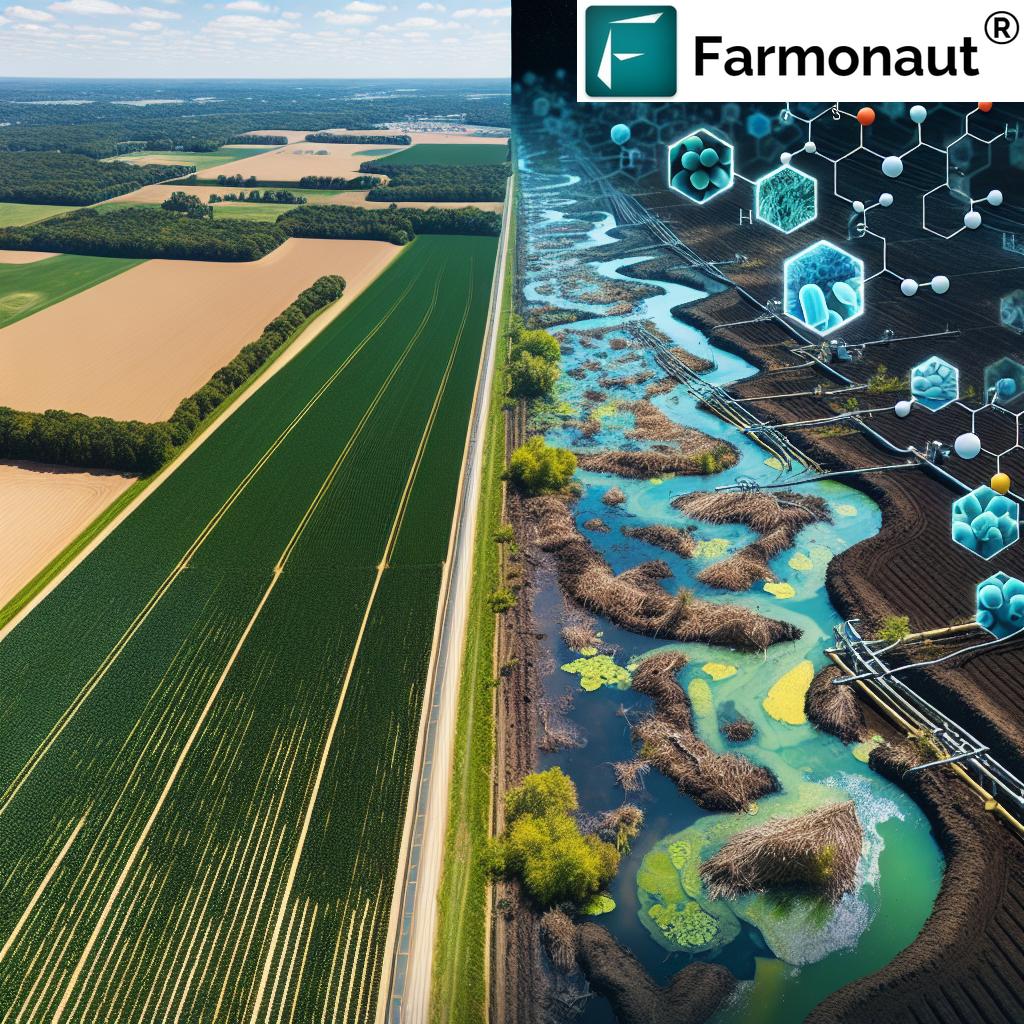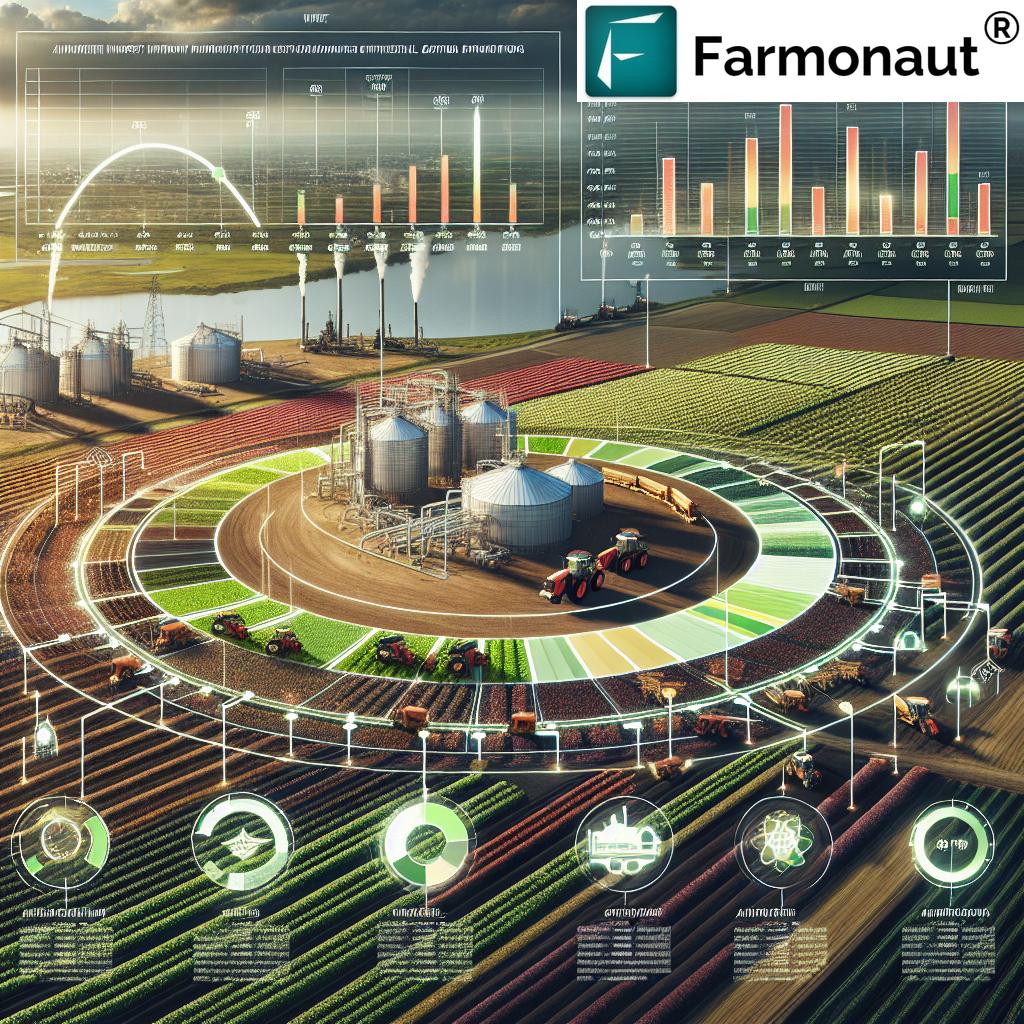Revolutionizing Agriculture: How AI and Collaborative Extension Programs Are Transforming Georgia’s Rural Development
“AI applications in agriculture have increased by 70% in Georgia’s extension programs over the last 3 years.”
In the heart of the American South, a quiet revolution is taking place. Georgia, known for its peaches and peanuts, is now becoming a hotbed of agricultural innovation. As we delve into the transformative power of artificial intelligence (AI) and collaborative extension programs, we’ll explore how these advancements are reshaping the landscape of rural development in the Peach State and beyond.
The Evolution of Agricultural Extension Services
Agricultural extension services have long been the backbone of rural development, providing farmers with crucial knowledge and resources. However, the traditional model of extension is undergoing a significant transformation, driven by technological advancements and the need for more efficient, data-driven approaches.
- Cooperative extension programs are embracing agritech innovation
- Community impact projects are leveraging agricultural technology solutions
- Universities are at the forefront of developing AI applications for agriculture
This shift is not just about adopting new tools; it’s about reimagining the entire concept of agricultural extension for the 21st century. The Integration of AI and machine learning in extension services promises to revolutionize agricultural practices, making them more precise, efficient, and sustainable.

The Impact Collaborative Summit: A Catalyst for Change
The recent Impact Collaborative Summit has been a pivotal event in showcasing the potential of collaborative efforts in agricultural innovation. This summit brought together diverse teams from across the nation, all focused on addressing local challenges through innovative approaches.
“The Impact Collaborative Summit featured 50+ teams working on rural development and sustainable agriculture initiatives.”
- Teams presented rural development initiatives
- Sustainable agriculture practices were a key focus
- The summit highlighted the power of collaboration in solving complex agricultural challenges
One of the standout features of the summit was the emphasis on AI-driven solutions. From crop monitoring to predictive analytics for pest management, the applications of AI in agriculture are vast and promising. These technologies are not just improving efficiency; they’re enabling a more sustainable and resilient agricultural sector.
Georgia’s Pioneering Role in Agricultural AI
Georgia, with its rich agricultural heritage, is emerging as a leader in the adoption of AI in farming practices. The state’s universities, in collaboration with extension services, are spearheading research and implementation of cutting-edge technologies.
- The University of Georgia is developing AI models for crop yield prediction
- Georgia Tech is working on autonomous farm machinery guided by AI
- Fort Valley State University is focusing on AI applications for small-scale farmers
These initiatives are not just academic exercises; they’re having a real impact on the ground. Farmers across Georgia are beginning to see the benefits of AI-enhanced agriculture, from increased yields to reduced input costs.
Collaborative Impact Projects: Bridging Technology and Community
At the heart of Georgia’s agricultural transformation are collaborative impact projects that bring together various stakeholders. These projects are not just about implementing new technologies; they’re about creating sustainable solutions that address the unique needs of rural communities.
- Statewide health initiatives are being integrated with agricultural programs
- Community engagement is enhanced through agricultural technology solutions
- Local challenges are being addressed through innovative, tech-driven approaches
One such project is the “Smart Farms of Georgia” initiative, which aims to equip small and medium-sized farms with AI-powered monitoring systems. This project, a collaboration between the Georgia Department of Agriculture and several state universities, is helping farmers make data-driven decisions to optimize their operations.
The Role of Extension Funding Opportunities
The transformation of agricultural extension services wouldn’t be possible without adequate funding. Fortunately, there’s been a significant increase in extension funding opportunities, both at the state and national levels.
- Federal grants are supporting AI research in agriculture
- State-level funding is focusing on implementing AI solutions in local farming communities
- Private-public partnerships are emerging as a key funding model for agricultural innovation
These funding opportunities are empowering extension professionals to deliver impactful solutions. They’re not just providing financial support; they’re fostering a culture of innovation and collaboration within the agricultural sector.

Virtual Conferencing: Enhancing Accessibility in Agricultural Extension
The COVID-19 pandemic accelerated the adoption of virtual conferencing tools in agricultural extension, and this trend is here to stay. These tools are not just a temporary solution; they’re revolutionizing how extension services are delivered.
- Virtual workshops are reaching farmers in remote areas
- Online training programs are making agricultural education more accessible
- Digital platforms are facilitating knowledge sharing among farmers and experts
The use of virtual conferencing tools is particularly important in a state like Georgia, with its mix of urban and rural areas. These tools are bridging the gap between extension professionals and farmers, ensuring that crucial information and support are always within reach.
AI Applications in Agriculture: A Comparative Analysis
To truly understand the impact of AI on agricultural extension services, it’s helpful to compare traditional methods with AI-enhanced approaches. The following table provides a comprehensive overview of how AI is transforming various aspects of agricultural extension:
| Extension Service Area | Traditional Method | AI-Enhanced Approach | Estimated Improvement |
|---|---|---|---|
| Crop Monitoring | Manual field inspections | Satellite imagery and AI analysis | 90% time-saving, 95% accuracy |
| Pest Management | Scheduled pesticide application | AI-powered predictive pest modeling | 60% reduction in pesticide use |
| Yield Prediction | Historical data and experience | Machine learning models using multiple data points | 85% prediction accuracy |
| Resource Allocation | Uniform application of resources | Precision agriculture with AI-optimized resource use | 30% reduction in water and fertilizer use |
| Farmer Training | In-person workshops and printed materials | AI-powered personalized learning platforms | 70% increase in knowledge retention |
This comparative analysis clearly demonstrates the transformative potential of AI in agricultural extension. The efficiency gains and improved outcomes are not just impressive on paper; they’re having a real impact on farms across Georgia and beyond.
The Role of Farmonaut in Agricultural Innovation
In the landscape of agricultural technology, Farmonaut stands out as a pioneer in satellite-based farm management solutions. While not directly involved in extension services, Farmonaut’s technologies align closely with the goals of modern agricultural extension programs.
- Satellite-based crop health monitoring
- AI-driven advisory systems
- Blockchain-based traceability solutions
These technologies are complementing the efforts of extension services, providing farmers with powerful tools to enhance their decision-making processes. Farmonaut’s platform is particularly relevant in the context of Georgia’s agricultural transformation, offering solutions that align with the state’s focus on precision agriculture and sustainable farming practices.
Explore Farmonaut’s solutions:
The Future of Agricultural Extension in Georgia
As we look to the future, it’s clear that the integration of AI and collaborative approaches will continue to shape agricultural extension in Georgia. The state is well-positioned to lead the nation in innovative agricultural practices, thanks to its robust network of universities, supportive policies, and forward-thinking farming communities.
- Increased focus on data-driven decision making in agriculture
- Expansion of AI applications to more aspects of farming
- Greater emphasis on sustainable and resilient agricultural practices
The future of agricultural extension in Georgia is not just about technology; it’s about creating a more sustainable, efficient, and productive agricultural sector that benefits farmers, consumers, and the environment alike.
Challenges and Opportunities
While the potential of AI and collaborative extension programs is immense, there are challenges to overcome:
- Ensuring equitable access to technology across all farming communities
- Addressing concerns about data privacy and security
- Bridging the digital divide in rural areas
- Training extension professionals in new technologies
However, these challenges also present opportunities for innovation and growth. By addressing these issues head-on, Georgia can create a more inclusive and effective agricultural extension system that serves as a model for the rest of the nation.
The Broader Impact on Rural Development
The transformation of agricultural extension services is having a ripple effect on rural development as a whole. By empowering farmers with cutting-edge technologies and knowledge, we’re seeing:
- Increased economic opportunities in rural areas
- Improved food security and sustainability
- Enhanced quality of life for farming communities
- Greater resilience in the face of climate change
These impacts extend far beyond the farm gate, contributing to the overall vitality and sustainability of rural Georgia.
Conclusion: A New Era for Georgia’s Agriculture
As we’ve explored throughout this article, the integration of AI and collaborative extension programs is ushering in a new era for Georgia’s agriculture. From the fields of South Georgia to the research labs of Atlanta, innovation is transforming how we grow food, support farmers, and develop rural communities.
The journey is just beginning, but the potential is enormous. By embracing these technological advancements and fostering collaboration between universities, extension services, and technology providers like Farmonaut, Georgia is positioning itself at the forefront of agricultural innovation.
As we move forward, it’s crucial that we continue to invest in these technologies, support our extension professionals, and ensure that the benefits of this agricultural revolution reach all corners of the state. The future of Georgia’s agriculture is bright, and it’s being shaped by the power of AI and the spirit of collaboration.
FAQ Section
Q: How is AI transforming agricultural extension services in Georgia?
A: AI is revolutionizing agricultural extension services in Georgia by enabling more precise crop monitoring, predictive pest management, accurate yield predictions, optimized resource allocation, and personalized farmer training programs. These AI-driven approaches are significantly improving efficiency and sustainability in farming practices.
Q: What role do collaborative extension programs play in rural development?
A: Collaborative extension programs are crucial in rural development as they bring together various stakeholders, including universities, government agencies, and farmers, to address local challenges. These programs facilitate the implementation of innovative solutions, knowledge sharing, and the adoption of new technologies in rural communities.
Q: How are virtual conferencing tools enhancing agricultural extension?
A: Virtual conferencing tools are making agricultural extension services more accessible, especially in remote areas. They allow for online training programs, virtual workshops, and digital platforms for knowledge sharing, bridging the gap between extension professionals and farmers regardless of geographical barriers.
Q: What are some challenges in implementing AI in agricultural extension?
A: Key challenges include ensuring equitable access to technology across all farming communities, addressing data privacy and security concerns, bridging the digital divide in rural areas, and training extension professionals in new technologies. Overcoming these challenges is crucial for the successful integration of AI in agricultural extension.
Q: How is Farmonaut contributing to agricultural innovation?
A: Farmonaut is contributing to agricultural innovation through its satellite-based farm management solutions, AI-driven advisory systems, and blockchain-based traceability solutions. While not directly involved in extension services, Farmonaut’s technologies complement extension efforts by providing farmers with advanced tools for decision-making and farm management.
For more information on Farmonaut’s API services, visit our API page or check out our API Developer Docs.






